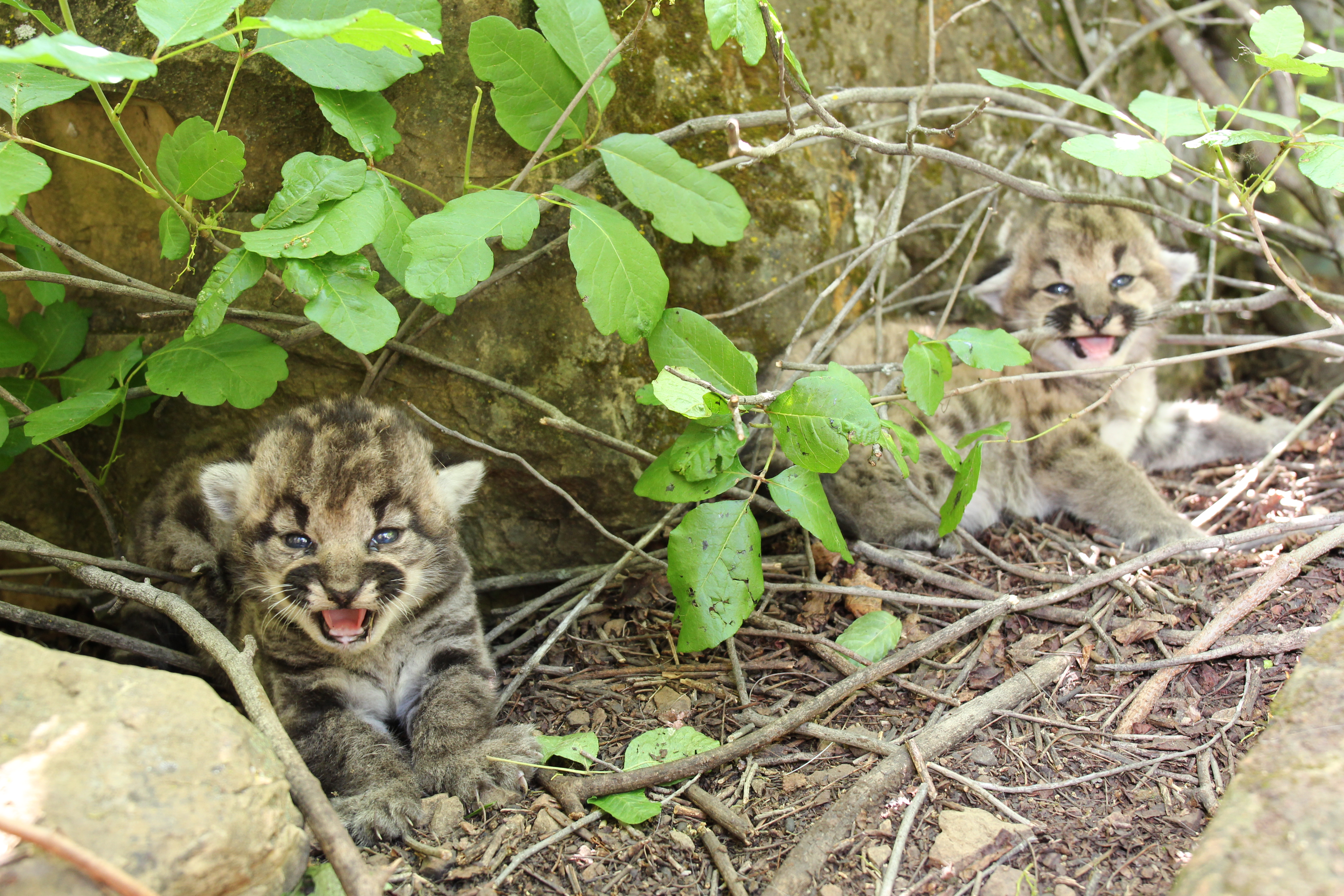News Release

National Park Service
|
Subscribe
|
Contact: Ana Beatriz Cholo, 805-750-9356
THOUSAND OAKS, Calif.— According to National Park Service (NPS) biologists, mountain lion P-77 recently gave birth to three female kittens in the Simi Hills, a small area of habitat between the larger Santa Monica and Santa Susana Mountain ranges. All three kittens are now known as P-113, P-114, and P-115. Public domain photos and video here.
Biologists located the kittens in a dense patch of poison oak nestled among large boulders on May 18. All three kittens appeared healthy and were determined to be 24 days old based on when P-77 first arrived at the site.
P-77 is estimated to be around 5-6 years old. She was first captured in the Simi Hills in November 2019, and biologists say she has established her adult home range in this smaller habitat patch between the 101 and 118 freeways.
Based on remote camera images after P-77 was first captured, biologists suspect that she had a previous litter. The father of this new litter is presently unknown. NPS biologists are not currently following an adult male in the area between the 101 and 118 freeways, so they suspect the father of this litter likely came from the Santa Susana Mountains and then went back.
“It will be interesting to learn how these kittens will use the landscape once they get older and disperse, particularly if they decide to stay in the Simi Hills or cross freeways to enter larger natural areas.” said Jeff Sikich, the lead field biologist of the NPS mountain lion study. “It's encouraging to see reproduction in our small population of mountain lions, especially after all the mortalities we have documented in the last year.”
P-77 has previously crossed both freeways and has spent short periods in the Santa Monica and Santa Susana Mountains.
This is the third litter marked in the Simi Hills through the study. Researchers marked one litter from P-62 in 2018 and one from P-67 in 2020. Both cats are now deceased.
The last two adult males radio-tracked regularly in the Simi Hills were P-64, who died as a result of the Woolsey Fire in December 2018, and P-38, who was poached in July 2019. Both animals used other mountain ranges and the Simi Hills as part of their home ranges.
This is the 25th litter of kittens NPS biologists have marked at the den site. Four additional litters of kittens were discovered and marked when the kittens were at least six months old and traveling with their mother.
Each visit to a den by a biologist occurs while the mother is away hunting for food, feeding, or resting. A biologist will track her movements via telemetry while others on the team approach the den area. Once the den is found, the researchers will conduct a general health assessment of the kittens a short distance away and place them back when finished. This typically takes less than an hour.
The biologists determine the sex of each kitten, take various body measurements including weight, obtain biological samples, and place one uniquely numbered and colored ear tag in each kitten. This tag helps identify them in the future with remote cameras and when recaptured for the placement of a radio collar.
Since 2002, the National Park Service has been studying mountain lions in and around the Santa Monica Mountains to determine how they survive in a fragmented and urbanized environment. The California Department of Fish and Wildlife (CDFW) is responsible for overseeing the management and conservation of mountain lions in the state.
Santa Monica Mountains National Recreation Area (SMMNRA) is the largest urban national park in the country, encompassing more than 150,000 acres of mountains and coastline in Ventura and Los Angeles counties. A unit of the National Park Service, it comprises a seamless network of local, state and federal parks interwoven with private lands and communities. As one of only five Mediterranean ecosystems in the world, SMMNRA preserves the rich biological diversity of more than 450 animal species and 26 distinct plant communities. For more information, visit www.nps.gov/samo.
###
Last updated: May 25, 2023
